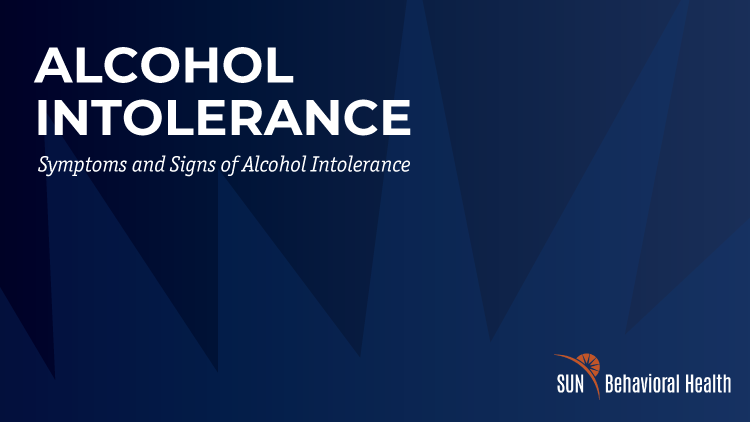Services
- Home
- Mental Health
- Who We Treat
- How We Treat
- Patients & Visitors
- About
- Lexington
close

Your friend offers you wine at a friend's Christmas house party. After about a half hour, you begin to feel very warm. A mutual friend says to you, “Your face is bright red. Are you okay?” You look in the mirror on your friend’s wall. You notice that not only is your face red, but so is your neck and upper chest peeking out from your shirt. You begin to feel sick and make your way to the bathroom.
You wonder why you are feeling this way. You don’t drink alcohol that often, and you had one glass. You've felt these symptoms before when you've drunk alcohol, but you thought you just needed to get used to it. You can’t figure out why you feel so sick and are worried that something must be wrong. The mutual friend knocks on the door. They ask if you are okay. You tell them you aren’t feeling well, suggesting you ate something at the party. The friend wonders if perhaps you have an intolerance to something. To yourself, you weigh the possibility of alcohol intolerance.
In 2019, 15.4% of people in Kentucky participated in binge drinking. For most people who have alcohol intolerance, the idea of participating in binge drinking might make them feel sick. Those who participate in regular binge drinking despite alcohol making them feel sick might have an alcohol use disorder. In those cases, they might wonder if treatment is right for them. SUN Behavioral Health Kentucky offers no-cost care assessments to potential patients that allow them to know if receiving treatment is right for them.
We also like to inform people about what might be happening to their bodies when they drink alcohol. Our blogs can involve symptoms associated with an alcohol use disorder, but they can also include things like alcohol intolerance. Today, we are going to discuss what alcohol intolerance is and how alcohol intolerance might happen.
People who have alcohol intolerance have a genetic disorder that prevents the body from breaking down alcohol successfully. It is not an allergy to alcohol, but it can cause reactions and symptoms that are very uncomfortable. These symptoms may occur because your body lacks the enzymes to break down alcohol, which is often inherited. Another reason these symptoms happen is because you are allergic to ingredients commonly found in alcohol, such as sulfites, grains, or histamine. Allergies to wheat or rye can also result in alcohol intolerance symptoms, though allergies do not cause alcohol intolerance.

There are several physical symptoms and signs that people might experience if they have alcohol intolerance. The most common sign is that your face, chest, and neck will become red and warm when you drink alcohol. However, flu symptoms can occur, such as nausea and vomiting. Other flu symptoms you might experience with alcohol intolerance include stuffy nose, diarrhea, and fatigue. You might also feel like you are experiencing a hangover with a throbbing headache while you are still drinking alcohol. You can also experience more dangerous symptoms such as tachycardia, heart palpitations, and hypotension.
There are a few factors that can increase your chances of having alcohol intolerance. While these factors do not necessarily mean you will have an intolerance to alcohol, they do make you more likely. People with an Asian ethnicity are more likely to have the gene that causes intolerance to alcohol and are at higher risk. Also, preexisting conditions such as asthma can increase the chances that you will have an intolerance to alcohol. Sometimes, new medications reacting with alcohol can also result in adverse symptoms. In rare cases, people who have Hodgkin’s lymphoma may be intolerant to alcohol.
Some complications can happen because of alcohol intolerance. One of those complications is the triggering of migraines. These migraines are the result of histamines in some alcohol. They can also be the result of an allergy to an ingredient found in alcohol. When you have an allergic reaction, your immune system will release histamines, potentially resulting in a migraine. If you have an allergic reaction to an ingredient in alcohol, the symptoms you are feeling may cause an anaphylactic reaction, which is life-threatening and requires immediate medical attention. However, alcohol intolerance is not caused by an allergy since it is a metabolic condition, even though the symptoms can be similar.
People are different, and this means that they will experience alcohol intolerance differently from other people. However, most people with alcohol intolerance will experience symptoms around 20-30 minutes after drinking alcohol. The early symptoms will typically be a flushed face or a runny nose. Afterward, respiratory reactions will happen. These reactions may include shortness of breath or a fast heart rate. The symptoms you experience depend on your intolerance and the amount of alcohol you drink. Severity depends on your experience, but the symptoms will last around 1-2 hours for most people.
A mild intolerance to alcohol is not necessary for a doctor’s visit. Avoiding alcohol or drinking non-alcoholic beverages in social settings can keep the symptoms away. More severe reactions might warrant a visit to your doctor, especially if you suspect an allergy to an ingredient in alcohol. Also, if you developed alcohol intolerance due to a new medication, it would be a good idea to discuss it with your doctor.
When you do go to your doctor for alcohol intolerance, your doctor will order a variety of tests. These tests include a skin test and a blood test. The skin test will determine if you are allergic to common ingredients found in alcohol, such as grain. A specialist will prick your skin with the substances, and a raised bump will appear if you have an allergic reaction. Blood tests will examine how your immune system responds to a substance in your bloodstream. A lab will check how your blood reacts to certain foods.
Ultimately, the best way to avoid alcohol intolerance symptoms is not to drink alcohol. Suppose you have alcohol intolerance symptoms and you can't stop drinking alcohol despite them; discuss with your doctor the possibility of an alcohol use disorder. If you have an alcohol use disorder, seeking treatment for alcohol use can make it easier to avoid alcohol and limit your alcohol intolerance symptoms.

People with alcohol intolerance will most likely not have an alcohol use disorder because the symptoms make them less likely to drink alcohol. However, suppose you do have an alcohol use disorder and alcohol intolerance. In that case, you have probably noticed the symptoms but find that you are unable to stop your alcohol use despite them. This can have a severe impact on your health long-term, as it puts you at risk of developing cancer and other diseases. Seeking alcohol addiction treatment is the best way to free yourself from the uncomfortable symptoms you might be experiencing when you drink.
Located in Erlanger, KY, SUN Behavioral Health solves unmet needs in our community. We offer 24/7 crisis care that allows you to get started on your treatment in the moment. Suppose you have alcohol intolerance but find yourself not being able to stop drinking alcohol. You might want to seek treatment on a weekend when many places are closed. By the time Monday comes around, you’ve decided treatment isn’t worth it and keep drinking alcohol. Our crisis center removes that possibility by allowing you to start your treatment now. For more information or to get started on your alcohol use disorder treatment, call us today at 859-429-5188.
You can develop a sudden intolerance to alcohol. More than likely, an alcohol intolerance might be caused by a new medication. However, in rare cases, certain illnesses can result in alcohol intolerance. Note that if your alcohol intolerance is genetic, it will not develop suddenly. You will have alcohol intolerance from birth.